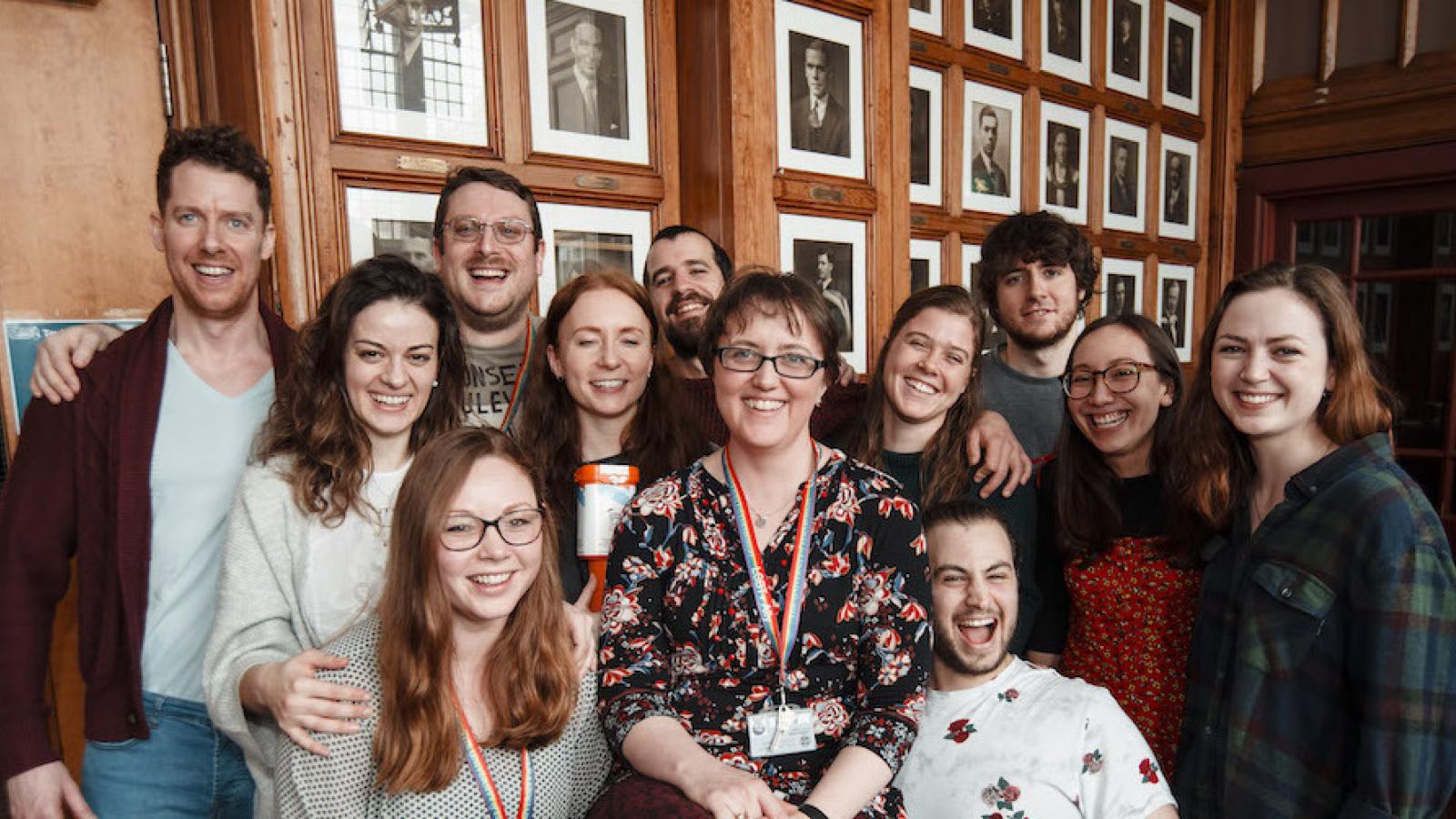The UK DRI congratulates Prof Tara Spires-Jones, Group Leader at UK DRI and Personal Chair of Neurodegeneration and Deputy Director of the Centre for Discovery Brain Sciences at the University of Edinburgh, as she is revealed as the British Neuroscience Association’s (BNA) new President-Elect. The announcement was made by the BNA’s new President Prof Rik Henson at the conclusion to the Festival of Neuroscience 2021.
Nominated by members of the BNA, Presidency of the BNA is a prestigious role, previously occupied by leading UK neuroscientists including John O’Keefe, Nancy Rothwell and David Nutt. The President-Elect, along with the President and Past-President, acts as a figurehead of the BNA, representing the BNA externally, and helping develop the organisation’s overarching strategic direction, aims and activities of the BNA. Prof Spires-Jones will take up the Presidency at the BNA Festival of Neuroscience 2023 in Brighton.
<p>Prof Tara Spires-Jones will become BNA President in 2023</p>
I am honoured to be President-Elect of BNA and look forward to continuing the excellent work of the Association to represent and promote neuroscience and neuroscientists in the UK and beyond.Prof Tara Spires-JonesUK DRI at Edinburgh
Prof Spires-Jones’ research focuses on the mechanisms and reversibility of neurodegeneration in Alzheimer’s disease, other degenerative brain diseases, and ageing. Working with a vibrant group of researchers, she is trying to understand why synapses and neurons become dysfunctional and die in these diseases in order to develop effective therapeutic strategies. Her work has shown that soluble forms of the pathological proteins amyloid beta and tau contribute to synapse degeneration, and that lowering levels of these proteins can prevent and reverse phenotypes in model systems.
Prior to moving to Scotland in 2013, Prof Spires-Jones ran a group studying Alzheimer’s disease pathogenesis with an emphasis on synaptic pathology at Massachusetts General Hospital (MGH) and Harvard Medical School, where she was Instructor from 2006-2011 and Assistant Professor from 2011-2013. She completed graduate training (MSc and DPhil) at the University of Oxford from 1999-2003, and undergraduate training at the University of Texas at Austin from 1994-1999.
In addition to her research, Prof Spires-Jones is passionate about communicating scientific findings to the public and policy makers; increasing the rigour and reproducibility in translational neuroscience; promoting inclusivity and diversity in science; and supporting career development of neuroscientists. She worked on these fronts as one of the founding Scholars of the FENS-Kavli Network of Excellence from 2014-2018. She is founding editor of the translational neuroscience journal Brain Communications, a member of the Board of Reviewing Editors at Science, Section Editor at the European Journal of Neuroscience, and is on the editorial boards of Neuron and Cell Reports.
Article published: 15 April 2021
